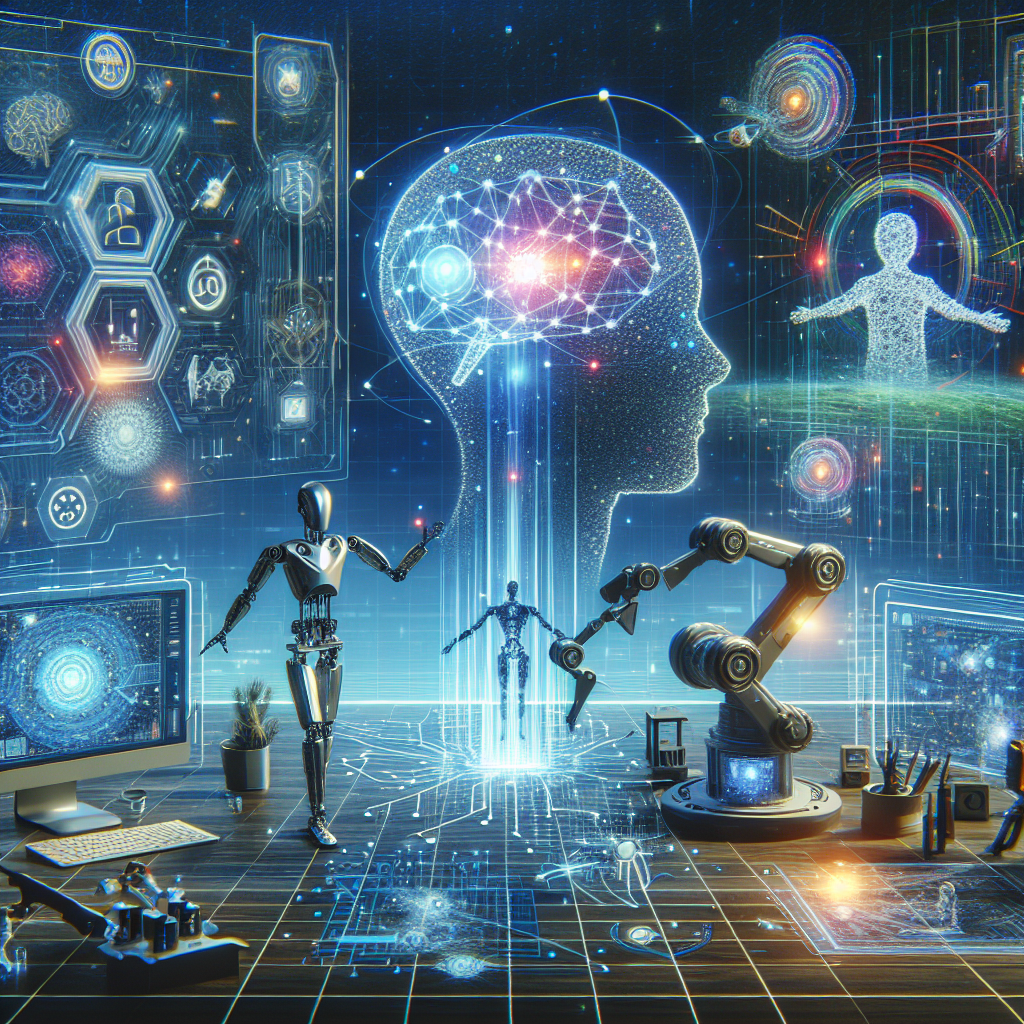AGI: A Game-Changer for the Future of Work
Artificial General Intelligence (AGI) is a concept that has been the subject of much speculation and debate in recent years. As the next evolution of artificial intelligence, AGI has the potential to revolutionize the way we work, making tasks easier, more efficient, and more accurate. In this article, we will explore the impact of AGI on the future of work and how it is poised to be a game-changer in various industries.
What is AGI?
AGI refers to a type of artificial intelligence that possesses the ability to understand, learn, and apply knowledge in a way that is similar to human intelligence. Unlike narrow AI, which is designed to perform specific tasks, AGI has the capacity to adapt and learn new skills without being explicitly programmed to do so. This means that AGI can perform a wide range of tasks across different domains, making it a versatile and powerful tool for various industries.
The development of AGI is seen as a significant milestone in the field of artificial intelligence, as it represents a leap forward in the capabilities of machines to think and act like humans. While AGI is still in the early stages of development, researchers and experts believe that it has the potential to transform the way we work and live in the future.
How will AGI impact the future of work?
The impact of AGI on the future of work is expected to be profound and far-reaching. With its ability to perform a wide range of tasks across different domains, AGI has the potential to automate and streamline many processes that are currently done manually. This can lead to increased efficiency, productivity, and cost savings for businesses, as well as create new opportunities for innovation and growth.
One of the key ways in which AGI will impact the future of work is through automation. As AGI becomes more advanced and capable, it can take over tasks that are currently done by humans, such as data analysis, decision-making, and problem-solving. This can free up human workers to focus on more complex and creative tasks, while also reducing the risk of errors and improving overall performance.
In addition to automation, AGI can also enhance collaboration and communication in the workplace. With its ability to understand and learn from human interactions, AGI can assist in tasks that require teamwork and coordination, such as project management, customer service, and virtual meetings. This can improve efficiency and effectiveness in the workplace, as well as foster a more collaborative and inclusive work environment.
Furthermore, AGI can enable personalized and customized solutions for businesses and consumers. By analyzing data and patterns, AGI can provide insights and recommendations that are tailored to individual needs and preferences. This can lead to better decision-making, improved customer satisfaction, and enhanced user experiences, ultimately driving business growth and success.
Overall, AGI has the potential to transform the way we work by making tasks easier, more efficient, and more accurate. By automating processes, enhancing collaboration, and enabling personalized solutions, AGI can revolutionize the workplace and create new opportunities for innovation and growth.
FAQs
Q: What are the potential risks of AGI in the future of work?
A: While AGI has the potential to revolutionize the way we work, it also poses certain risks and challenges. One of the main concerns is the potential for job displacement, as automation and AI technologies could replace human workers in certain tasks and industries. This could lead to unemployment and economic instability, as well as exacerbate existing inequalities and disparities in the workforce. Additionally, there are ethical and social implications of AGI, such as privacy concerns, bias in decision-making, and the potential for misuse of AI technologies. It is important for businesses and policymakers to address these risks and ensure that AGI is developed and deployed in a responsible and ethical manner.
Q: How can businesses prepare for the impact of AGI on the future of work?
A: To prepare for the impact of AGI on the future of work, businesses can take several steps to adapt and thrive in the changing landscape. This includes investing in AI technologies and training employees to work alongside AGI, developing new skills and competencies that are in demand in the digital age, and fostering a culture of innovation and collaboration in the workplace. By embracing AGI and its potential, businesses can stay ahead of the curve and capitalize on the opportunities that AI technologies present for growth and success.
Q: What are the key industries that will be most impacted by AGI in the future of work?
A: AGI has the potential to impact a wide range of industries and sectors, including healthcare, finance, retail, manufacturing, and transportation. In healthcare, AGI can assist in medical diagnosis, treatment planning, and patient care, improving the quality and efficiency of healthcare services. In finance, AGI can help in risk assessment, fraud detection, and investment management, enhancing decision-making and reducing operational costs. In retail, AGI can personalize shopping experiences, optimize inventory management, and enhance customer service, driving sales and customer loyalty. In manufacturing, AGI can automate production processes, monitor equipment performance, and optimize supply chain operations, increasing productivity and efficiency. In transportation, AGI can assist in route planning, traffic management, and autonomous driving, improving safety and sustainability in the transportation industry.Overall, AGI has the potential to transform the way we work and live in the future, creating new opportunities for innovation and growth across various industries. By embracing AGI and its capabilities, businesses can adapt and thrive in the changing landscape, leading to a more efficient, productive, and collaborative work environment for all.

